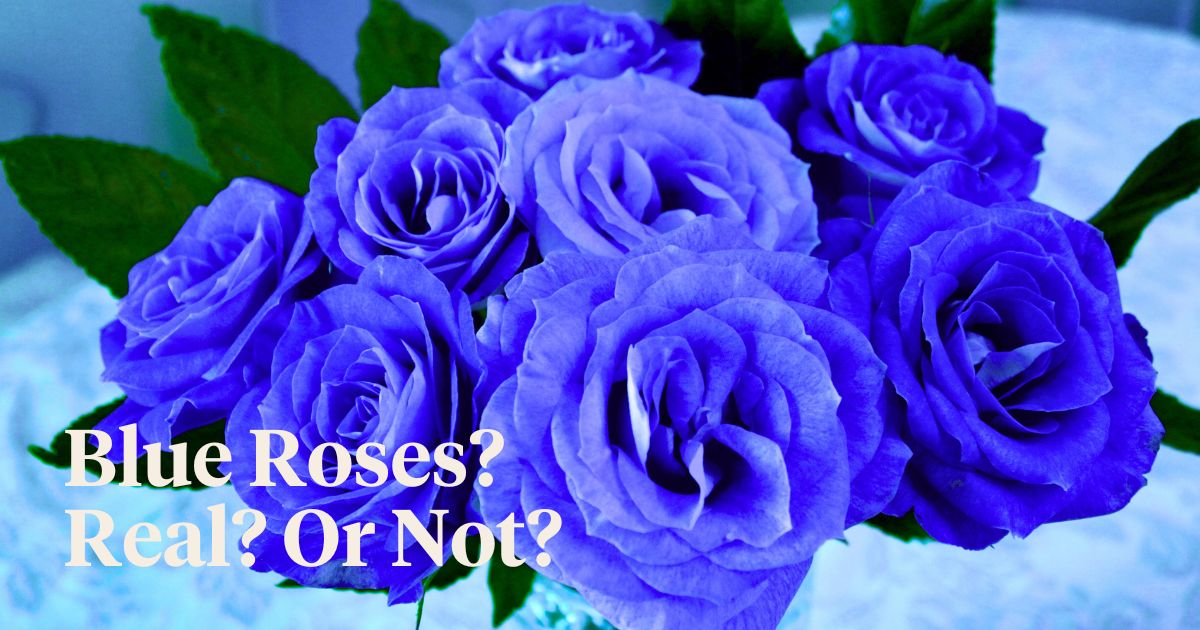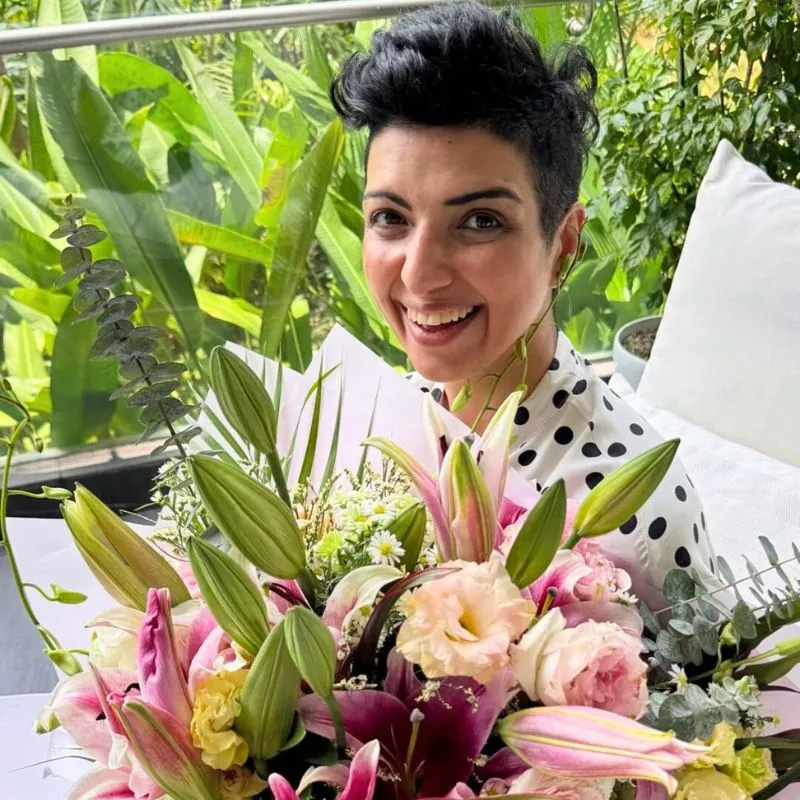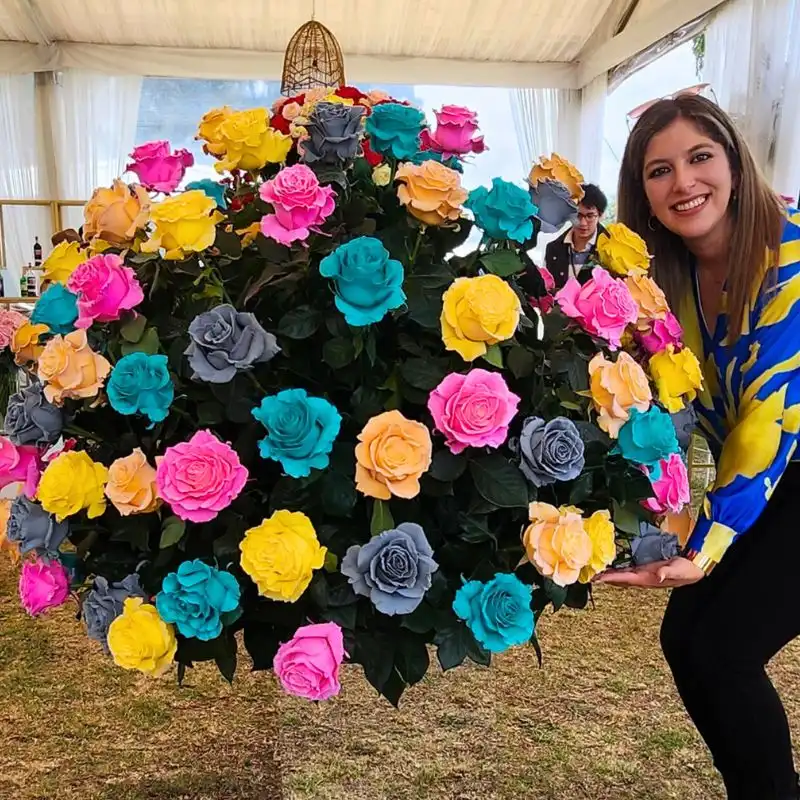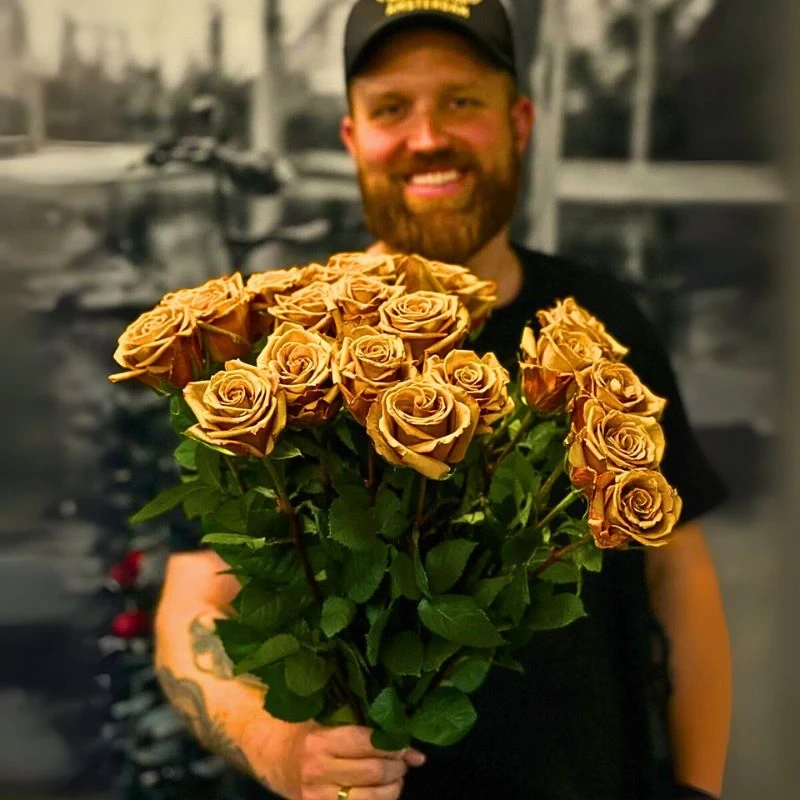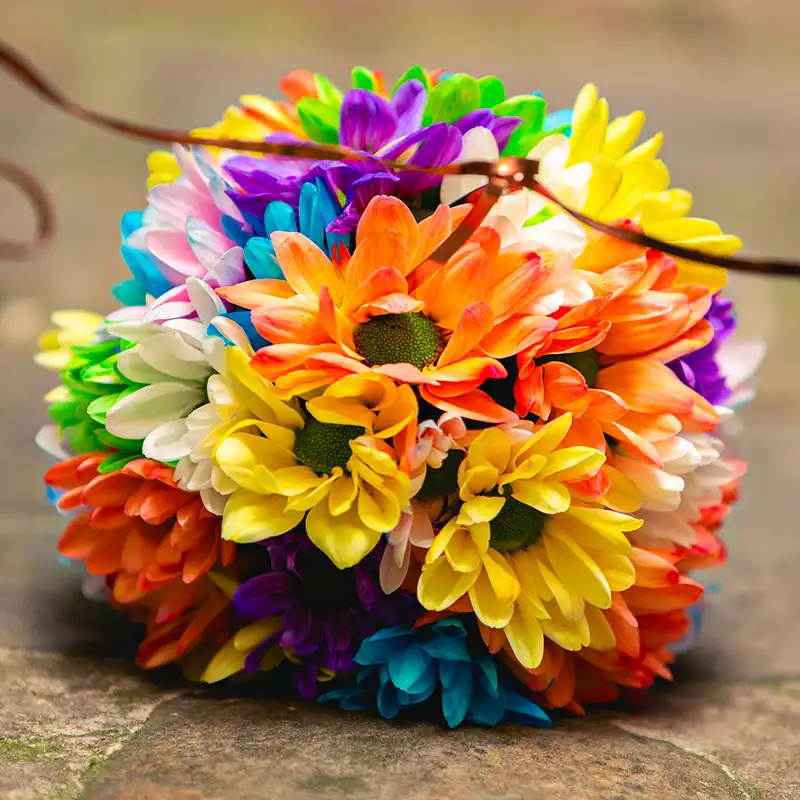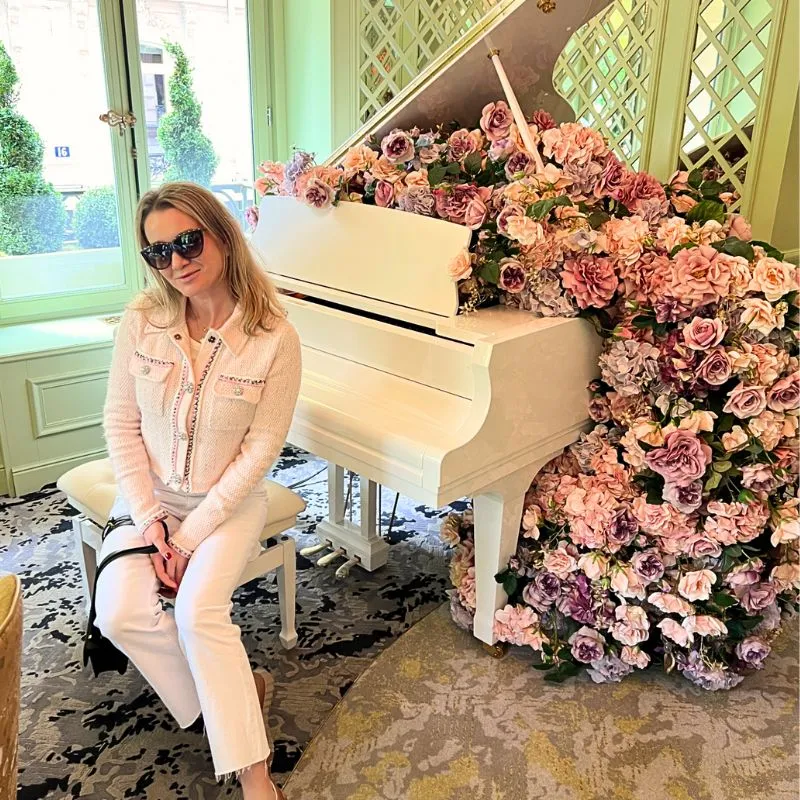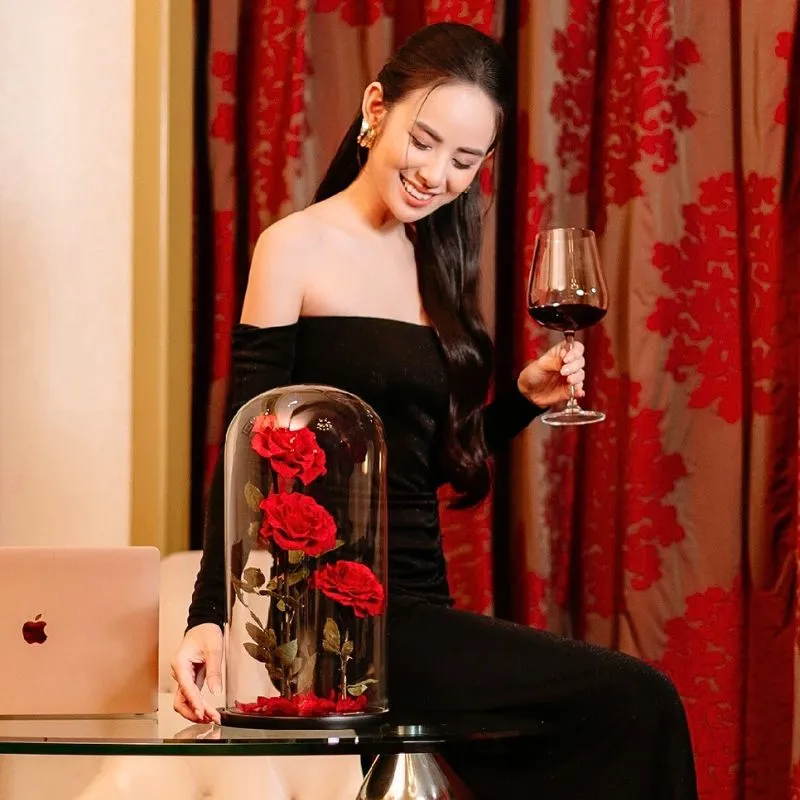Well, you can stop reading in a few seconds, the answer is "no." There are no true natural blue roses. Except for some lavender-tinted varieties of mainly garden roses, and some varieties of cut roses, there are no real blue roses. Despite advances in genetic engineering and biotechnology, achieving a true blue rose has not yet been realized. The closest developments have involved genetically modifying roses to produce blue-tinted or purple flowers, but not a true blue.
When you are looking for true blue, you have to go with dyed, tinted, or painted roses. (In floral arrangements). When it comes to outdoor patio and garden roses, true blue is just impossible in roses.
The Color Blue Does Not Exist in Roses
The color blue is not in the gene pool of roses. This means that naturally, or in the cross-breeding process of roses, it would be impossible to get a blue rose. Blue, and black, are two colors that you don't find in roses.
You can read an article about black roses, and why they don't exist, here: 'Matthias Meilland about Black Roses'.
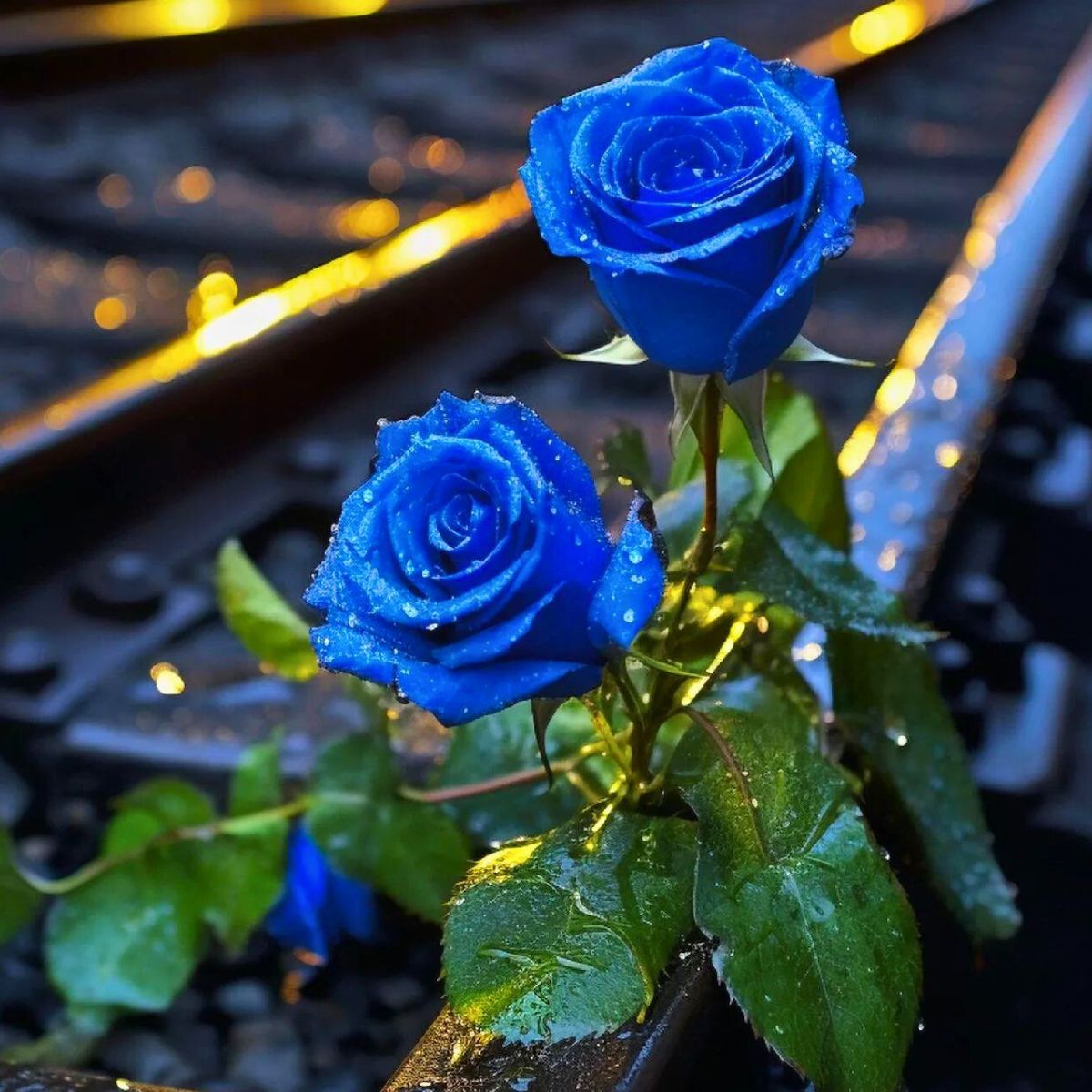
Photo by @naturefarver
So, do we have to wait for a crossing of a rose with a variety of flowers that have natural DNA that contains blue in it? Will this ever happen? Many are probably working on it, as a true, and natural blue rose would be a money-making machine for the first creator.
In 2004, researchers used genetic modification to create roses that contain the blue pigment delphinidin, which roses do not normally carry.
As for the stars of blue roses in nature, varieties such as Rose Shocking Blue® have gained tremendous backing as many floral designers love this color, and its longevity, and farms experience how healthy and productive the plant growth is. This was during Plantec 's latest Open House Days, one of the greatest successes to be seen around.
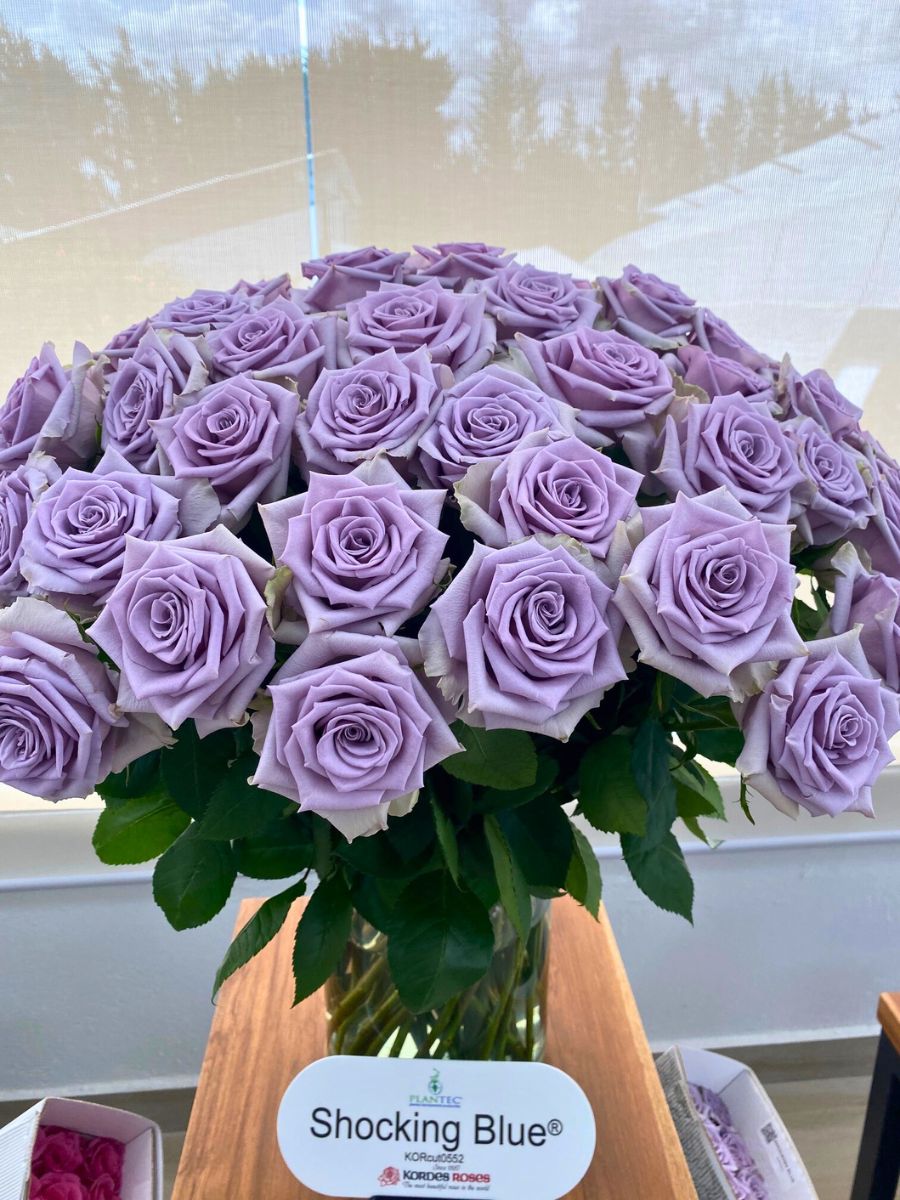
Despite the color turning out to be more of a lilac color, it was still referred to as a blue rose. But, it isn't. At this moment, and expected to be in the future, a true blue rose is impossible to create.
'Blue' Roses for Your Garden That Do Exist
Some roses that come closest to a natural blue in the garden are all lavender colored. The Rose Rhapsody in Blue is quite blue. Its color is bluish-purple, and it has a white center. To get a good picture of its true color, it's best to do a Google image search, so you can see all the different hues in photography.
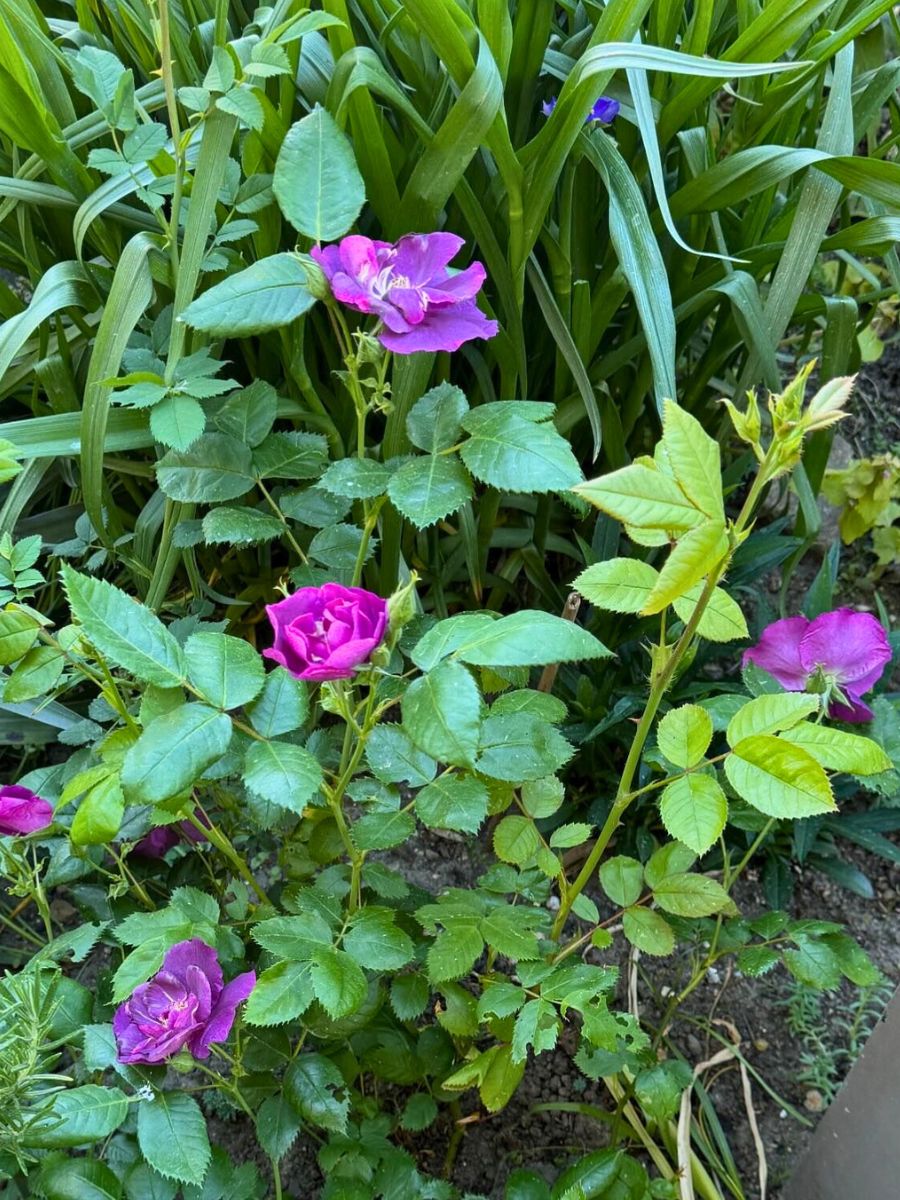
Photo by @villa.rosenbunt
With a white center, Rose Rhapsody in Blue is thought to be the bluest rose. Rose Indigoletta has real lavender-colored flowers and also smells fantastic. Same color as Rose Blue Moon, which comes with a pale lilac color, while Rose Violet Blue has a pale purple center and darker purple outer leaves.
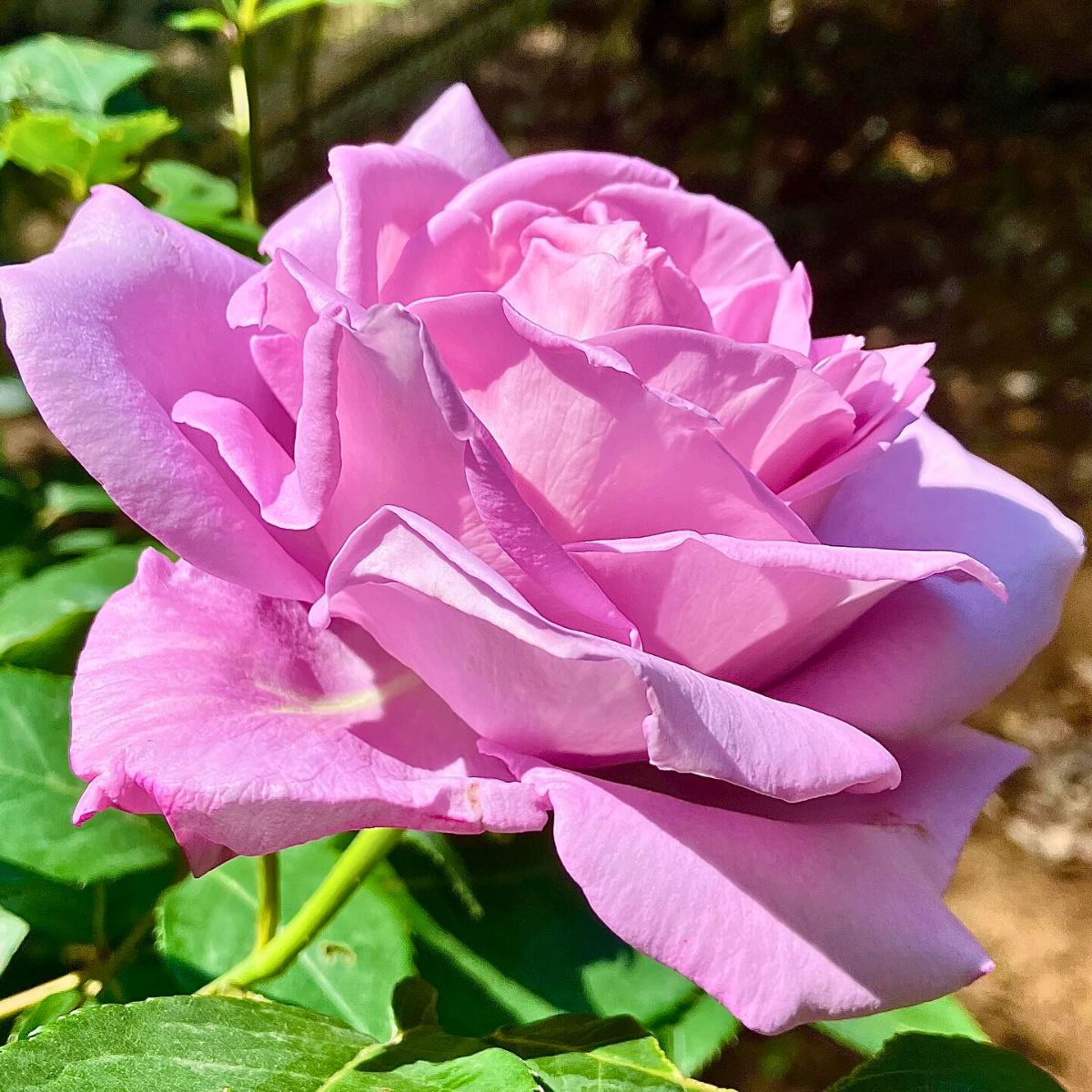
Photo by @lefty_yasuhiro
Does a True Blue Cut Rose Exist?
Natural 'blue' cut roses that you can use at home, in bridal arrangements, or in any other floral design are also only available in lavender tones. A variety that comes to mind is the beautiful, but very hard-to-get variety called Rose Everlasting Lavender. This rose is only grown at boutique farms, and because of its very special color, it is well sought after for specific bridal bouquets.
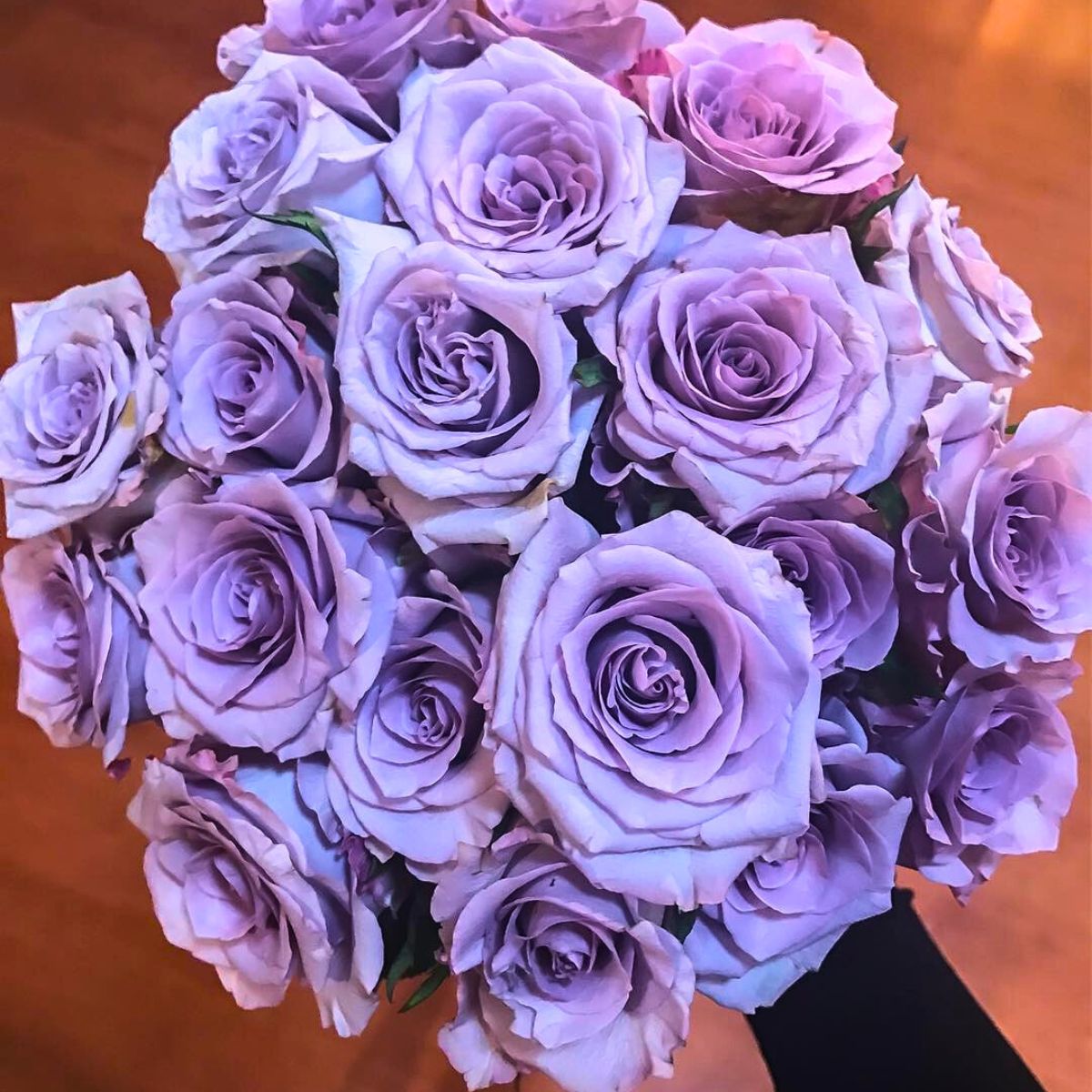
Photo by @william.exotique
Another great lavender-toned rose is the large-headed Rose Ocean Song. This one is mainly grown at farms in Ecuador, (and a few in Kenya), and is quite easy to get at flower shops around the world. Bred by the famous German breeder Rosen Tantau, the Ocean Song roses have a pale lavender bloom with an antique feel. Some other lavender roses are Rose Lavender Bouquet, Rose Tiara, and Rose Byzantine.
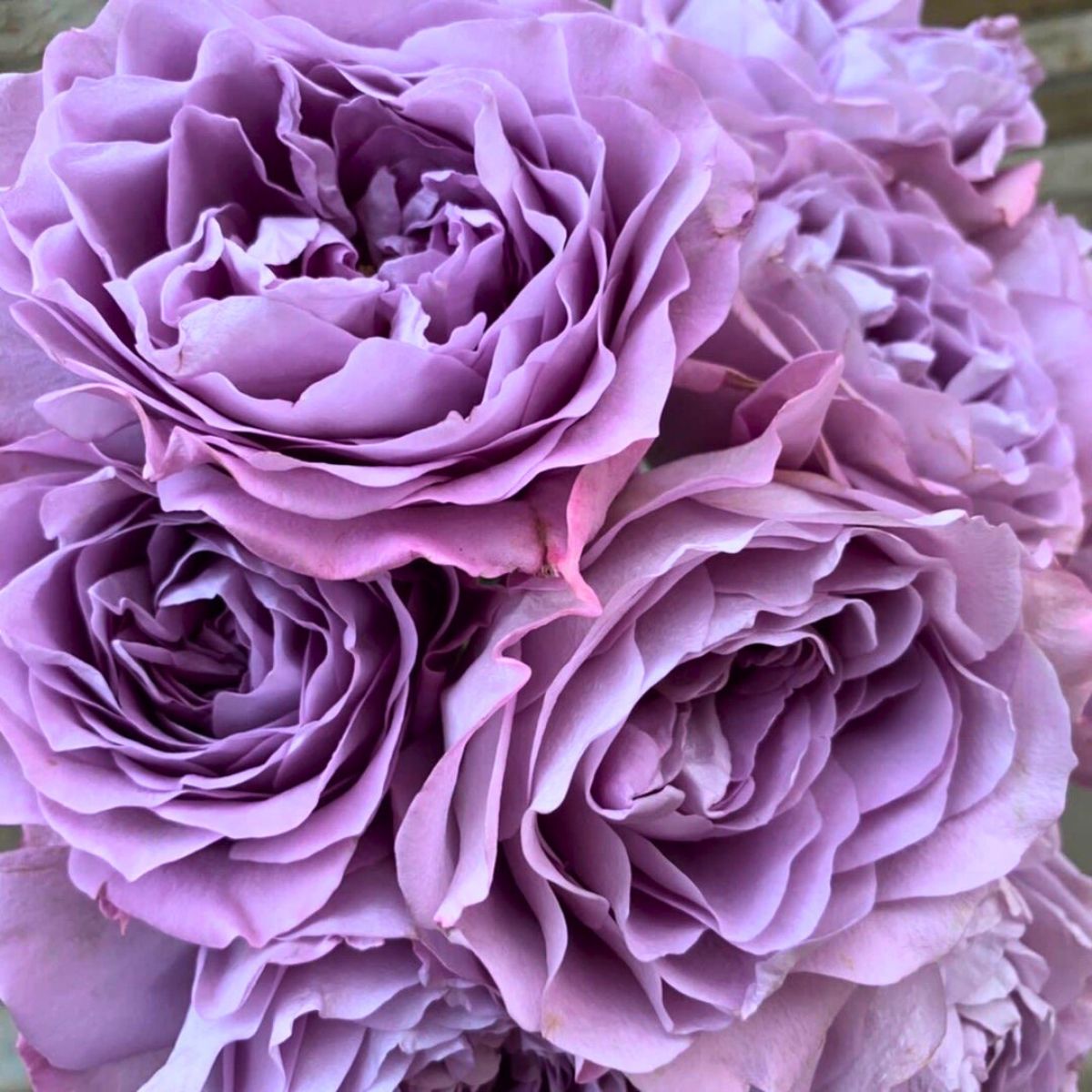
Photo by @alexandrafarms
Real Blue in Roses Only Comes Painted
The rue blue rose you sometimes see is fake, although it's real. Confusing? No, it's most of the time the white rose 'Vendela', who has been artificially colored. A dyed, colored, or painted blue rose. The electrifying blue hue is an imaginative alternative to traditional roses and will definitely take center stage in any arrangement or bouquet.
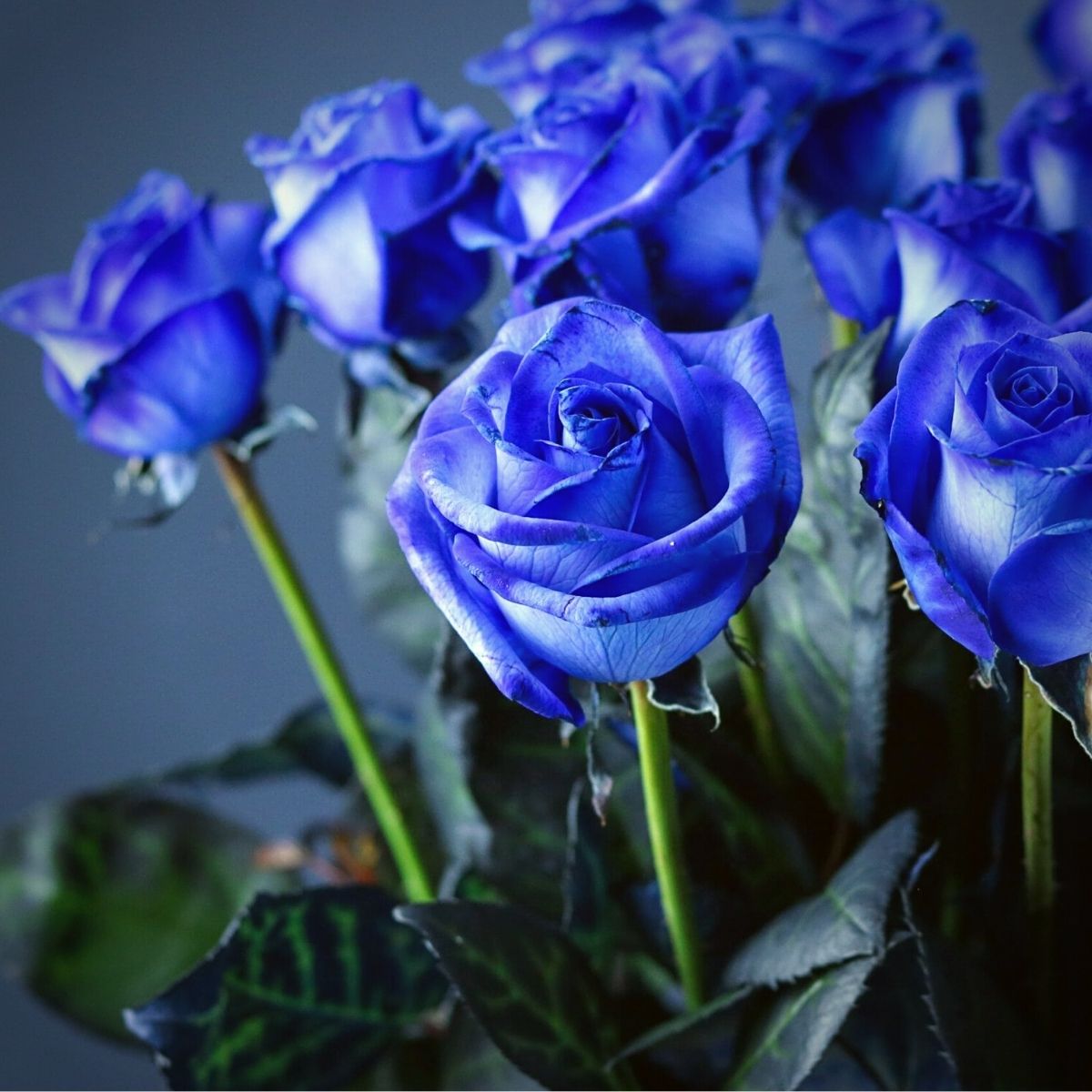
How to Color Your Roses Blue
There are different ways of making white roses blue. The most common one is to put a special dye in the water. You fill a glass vase or plastic container two-thirds full with water. Get some special flower coloring, and add a few drops of the coloring to the vase.
The more food coloring you add, the deeper the color. Stir the colored water with a spoon. Get some white roses from your garden, wholesaler, or at a flower shop, and cut the ends of the rose stems using sharp scissors, about a half-inch from the end.
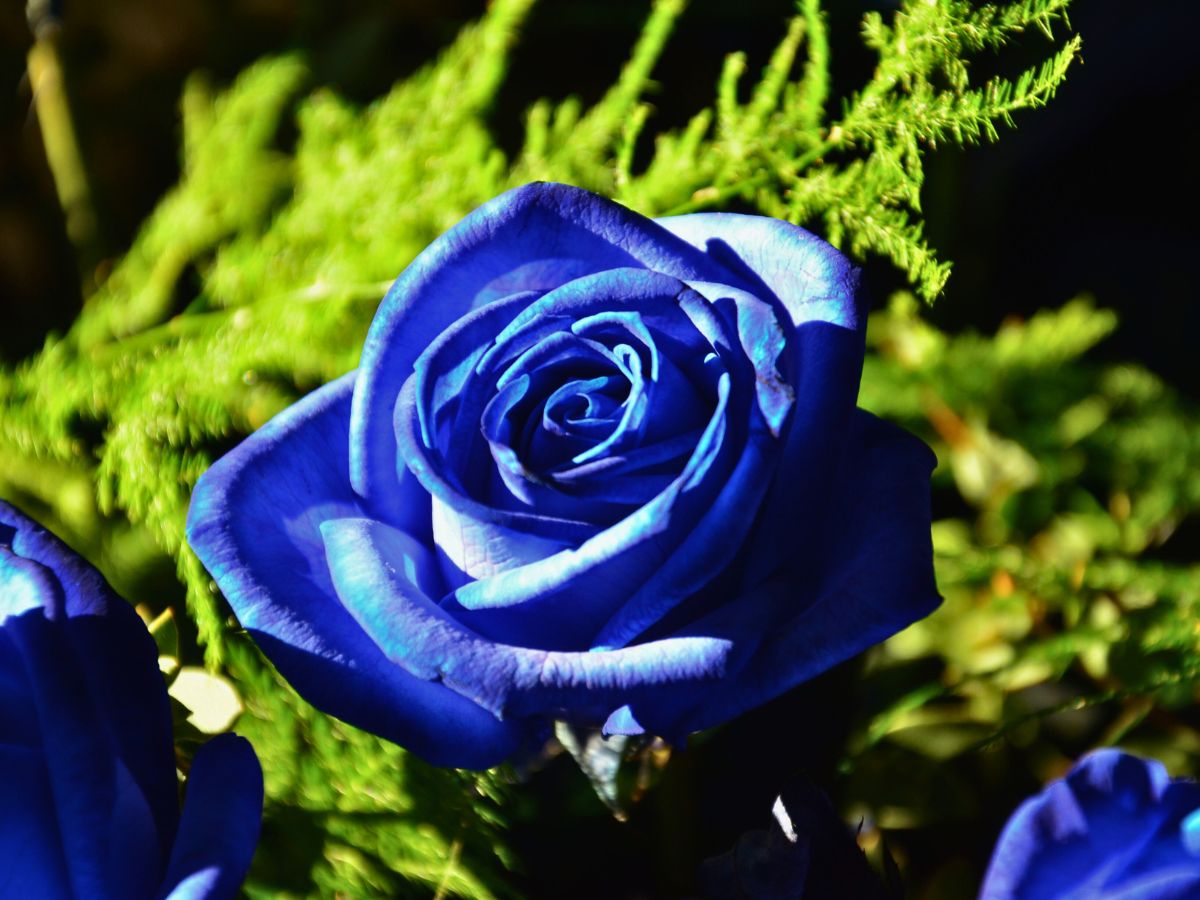
Make the cut at an angle so the flower can better absorb the liquid. Add the flowers to the colored water, place the stems in the vase, and allow the flowers to rest in the colored water for two days.
Now you have colored roses. If you like to learn more, read Kat Bass' blog on thursd: 'My Flower Dyeing Journey'.
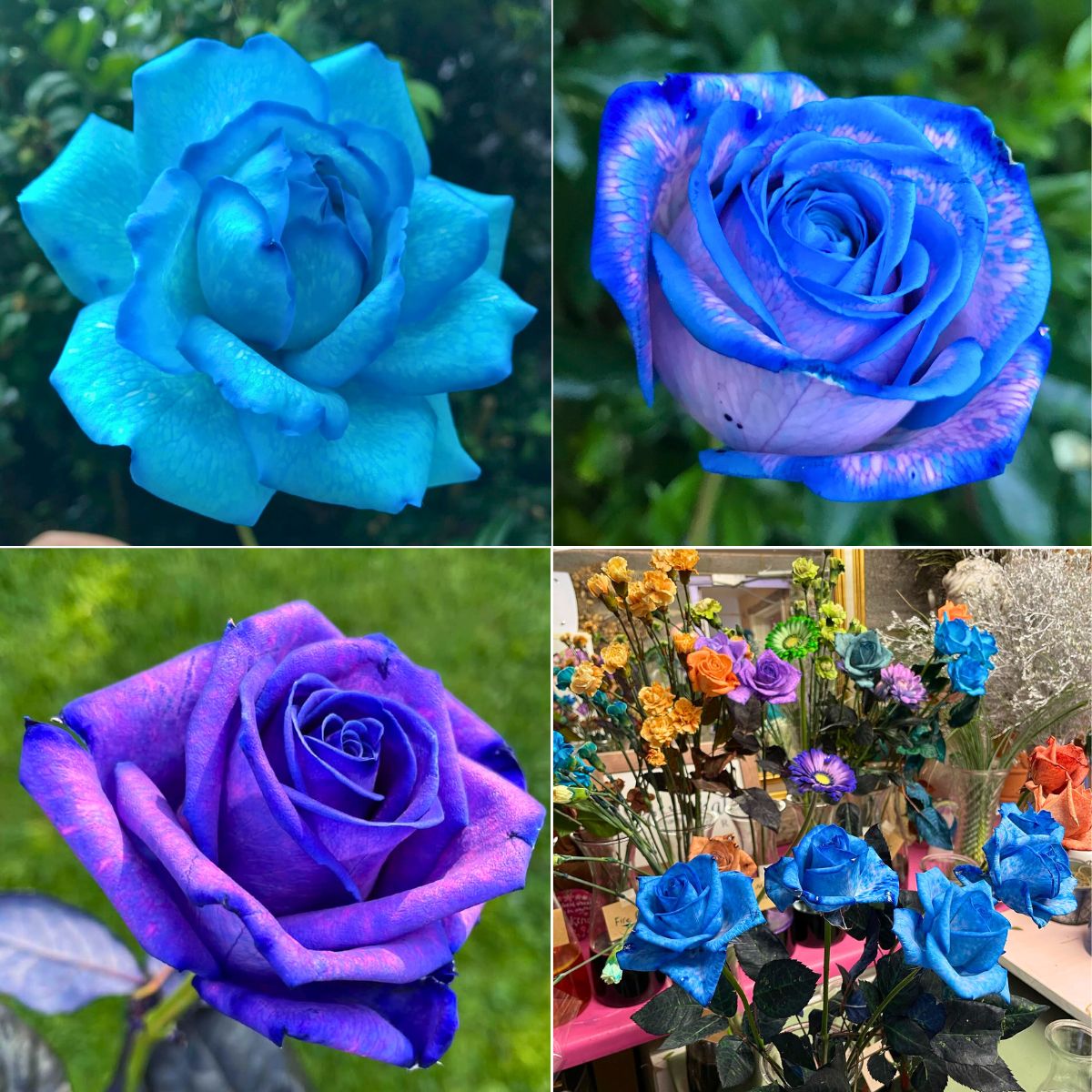
Photos by The Flower Lab
The History of Blue Roses - and the Future?
Historically, the blue roses only existed in paintings and poetry. It was later used as an object or subject in movies and stories. Blue roses are used to symbolize mystery or 'longing to attain the impossible'. We now know, that in nature a true blue rose does not exist.
But they have long been a horticultural goal due to the absence of a true blue pigment in roses, which makes creating a naturally blue rose extremely challenging. Currently, scientists are working on various approaches to achieve this:
- Genetic Modification: By inserting genes from other plants that produce blue pigments, scientists hope to create a blue rose. There have been partial successes, but the results are often closer to lavender or mauve than true blue.
- CRISPR Technology: This advanced gene-editing technology holds promise for more precise modifications, potentially leading to the creation of blue roses.
- Pigment Pathway Engineering: Scientists are studying the complex pathways of pigment production to find ways to alter them and produce blue pigments in roses.
Given the current pace of research and the complexity of the task, it is difficult to predict an exact timeline for the market availability of true blue roses. It could still be many years before a genuine blue rose is developed and commercialized. However, advancements in biotechnology are accelerating, so significant progress could be made within the next decade or two.
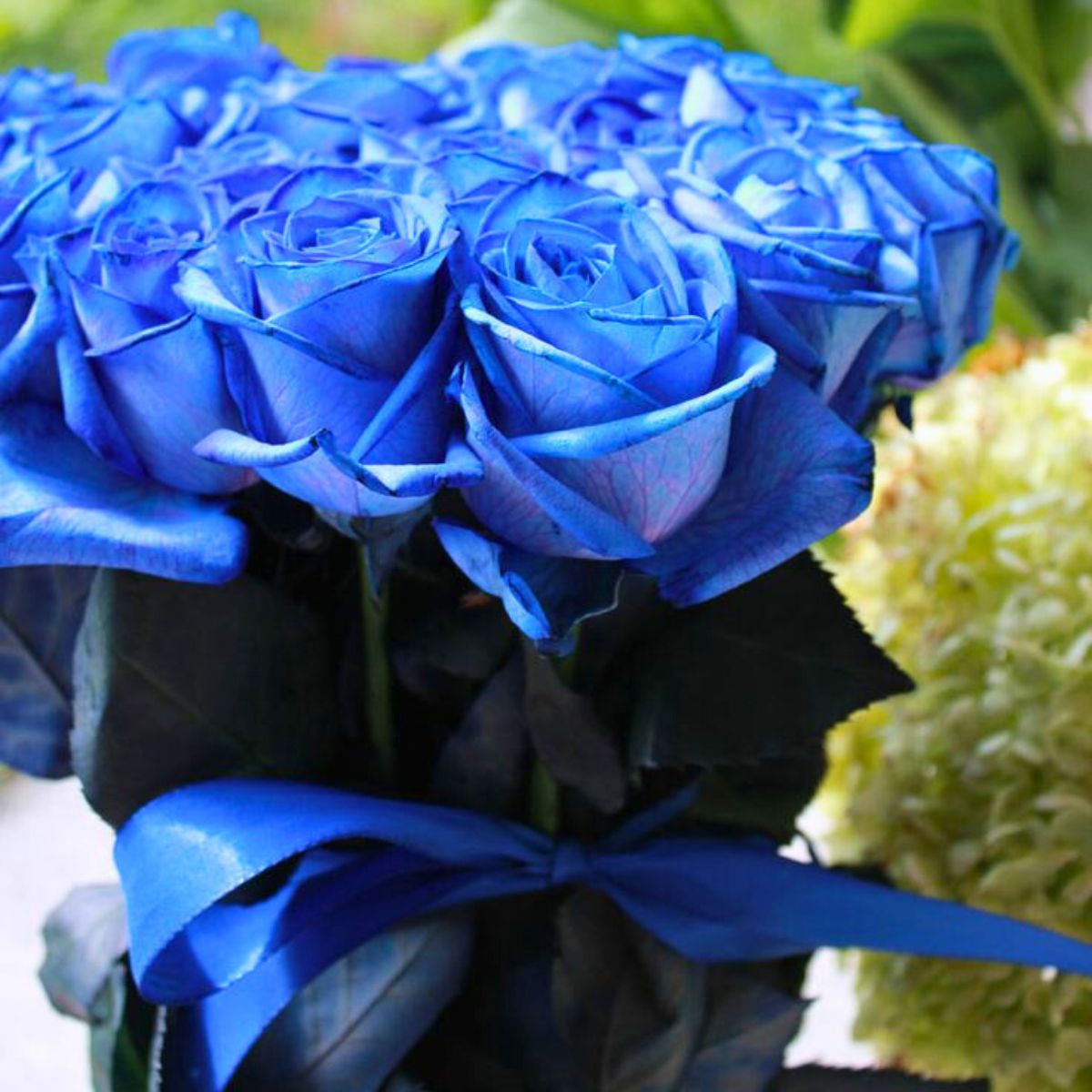
So, it will always take one extra step if you want to create a rose that matches the Thursd Floral Trend Color of the Year 2024 Sky Blue.
Feature image by @naturefarver, header image by BudgMe.

